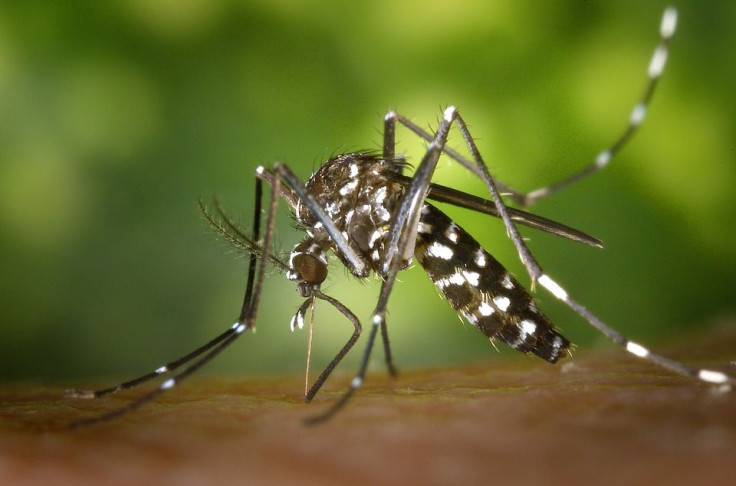Zika Update 2017: Virus Genetic Material Found In Second Mosquito Species Known As Asian Tiger

Zika virus genetic material was found in a second mosquito species, according to research published in the Journal of Medical Entomology. Researchers found Zika RNA in Asian tiger mosquitoes (Aedes albopictus). Currently, the main type of mosquito that spreads Zika and other viruses is the yellow fever mosquito (Aedes aegypti).
Although the mosquitos were found to carry Zika RNA, this does not mean they can definitively transmit the virus to humans, but the findings “should be of concern to public health,” lead study author Chelsea Smartt said in a press release, because the virus "rapidly spread through the Americas since its initial outbreak in 2015."
"This mosquito is found worldwide, has a wide range of hosts and has adapted to colder climates. The role of this mosquito in Zika virus transmission needs to be assessed,” said Smartt.
Read: Zika Virus Vaccine Research 2017: First US Volunteer Vaccinated In Trial
Smartt and her team collected Aedes albopictus eggs from homes in Brazil and then hatched them in a Florida lab; the hatched eggs resulted in 20 female and 10 male adult Asian tiger mosquitoes. Several of the males tested positive for Zika RNA, but not for the live virus.
“Detecting Zika RNA fragments without finding live Zika virus suggests that either the female parent was not itself infected with live Zika virus or it was not able to transfer live Zika virus to her eggs,” said Smartt.
Future research needs to be conducted to assess if Asian tiger mosquitoes are capable of transmitting the virus, Smartt notes.
Asian tiger mosquitoes, characterized by their black and white striped bodies and legs, are common in the United States. Unlike yellow fever mosquitoes, Asian tiger mosquitoes are aggressive biters and prefer the outdoors. Whereas, yellow fever mosquitoes bite, rest, and lay eggs both indoors and outdoors, the Centers for Disease Control and Prevention notes.
See also: Zika Virus: How Long Does It Stay In Your System?
Published by Medicaldaily.com



























